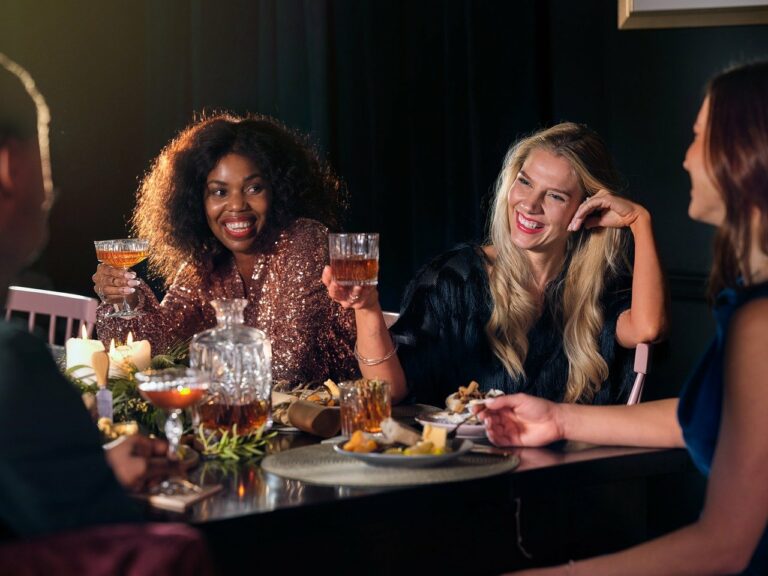The Impact of Social Media Influencers on QSR Marketing: 11 x play login, India24bet, Skyfairs signup
11 x play login, india24bet, Skyfairs Signup: Social media influencers have become a driving force in the marketing landscape, especially in the Quick Service Restaurant (QSR) industry. With the rise of platforms like Instagram, YouTube, TikTok, and Twitter, influencers have gained significant power to sway consumer behavior and influence purchasing decisions. In this article, we will explore the impact of social media influencers on QSR marketing and how brands can leverage this trend to their advantage.
The Rise of Social Media Influencers in QSR Marketing
Social media influencers are individuals who have built a large and engaged following on social media platforms. They are often seen as experts or trendsetters in their respective niches, and their recommendations and endorsements hold significant weight among their followers. In the QSR industry, influencers can play a crucial role in driving brand awareness, generating buzz around new products or promotions, and increasing foot traffic to physical locations.
The power of social media influencers lies in their ability to create authentic and relatable content that resonates with their audience. Unlike traditional celebrities or advertisements, influencers have a more personal and direct connection with their followers, which makes their endorsements feel more genuine and trustworthy. When an influencer promotes a QSR brand or product, their followers are more likely to perceive it as a personal recommendation rather than a paid advertisement.
How Social Media Influencers Impact QSR Marketing
1. Increased Brand Visibility: By partnering with social media influencers, QSR brands can reach a wider audience and increase their brand visibility. Influencers have the ability to expose their followers to new products or services in a way that feels organic and authentic, leading to higher engagement and brand awareness.
2. Drive Foot Traffic: Influencers can help drive foot traffic to QSR locations by promoting special offers, discounts, or limited-time promotions to their followers. By creating a sense of urgency and exclusivity, influencers can encourage their audience to visit a particular restaurant or try a new menu item.
3. Build Brand Credibility: When influencers endorse a QSR brand, they lend their credibility and reputation to the product or service. This can help build trust among consumers and establish the brand as a reputable and trustworthy choice in the minds of potential customers.
4. Create Buzz Around New Products: Social media influencers have the power to create buzz around new products or menu items by showcasing them in a creative and engaging way. By leveraging influencers’ creativity and reach, QSR brands can generate hype and anticipation for their latest offerings.
5. Engage with Target Audience: Influencers have a deep understanding of their audience’s preferences, interests, and behaviors. By partnering with influencers who have a similar target demographic, QSR brands can effectively engage with their desired audience and create content that resonates with them on a personal level.
6. Keep Up with Trends: Social media influencers are at the forefront of cultural trends and emerging social media platforms. By collaborating with influencers, QSR brands can stay current and relevant in a fast-paced digital landscape, ensuring that their marketing efforts remain effective and impactful.
Challenges of Working with Social Media Influencers
While there are many benefits to partnering with social media influencers, there are also some challenges that QSR brands should be aware of. These include:
1. Authenticity and Transparency: It is essential for influencers to disclose when their content is sponsored or paid for by a brand. Failure to do so can damage both the influencer’s credibility and the brand’s reputation.
2. Finding the Right Fit: Not all influencers will align with a QSR brand’s values, messaging, or target audience. It is crucial to find influencers whose personal brand and content style resonate with the brand’s identity and goals.
3. Measurement and ROI: Measuring the impact of influencer marketing campaigns can be challenging. It is essential to establish clear KPIs and track metrics such as engagement, reach, and conversion rates to determine the effectiveness of the partnership.
4. Pricing and Negotiation: Influencers vary in terms of reach, engagement, and rates. Negotiating fair compensation and establishing clear expectations upfront are crucial for a successful collaboration.
5. Reputation Management: Influencers can have a significant impact on a brand’s reputation, both positively and negatively. It is essential to vet influencers carefully and monitor their content to ensure that it aligns with the brand’s values and messaging.
6. Legal and Regulatory Compliance: Influencer marketing is subject to regulations and guidelines set forth by the Federal Trade Commission (FTC) and other regulatory bodies. Brands and influencers must adhere to these rules to avoid legal repercussions.
FAQs
Q: How can QSR brands identify the right influencers to partner with?
A: QSR brands should look for influencers whose values, content style, and audience demographics align with their own. Conducting thorough research, reviewing past partnerships, and analyzing engagement metrics can help identify the right fit.
Q: What types of collaborations can QSR brands pursue with social media influencers?
A: QSR brands can collaborate with influencers on a wide range of initiatives, including sponsored posts, product placements, giveaways, brand ambassadorships, and event partnerships.
Q: How can QSR brands measure the success of influencer marketing campaigns?
A: QSR brands can measure the success of influencer marketing campaigns by tracking key metrics such as engagement rates, reach, conversion rates, website traffic, and social media followers. Establishing clear KPIs and tracking tools is essential for measuring ROI.
Q: What are some best practices for working with social media influencers in the QSR industry?
A: Some best practices for working with social media influencers in the QSR industry include establishing clear expectations, providing creative freedom, fostering authentic partnerships, monitoring content for compliance, and nurturing long-term relationships.
In conclusion, social media influencers have revolutionized the way QSR brands market their products and services. By leveraging influencers’ reach, authenticity, and creativity, QSR brands can effectively engage with their target audience, increase brand awareness, and drive foot traffic to their locations. While there are challenges associated with influencer marketing, the benefits far outweigh the risks when executed thoughtfully and strategically. As the digital landscape continues to evolve, QSR brands that embrace influencer marketing will have a competitive advantage in reaching and connecting with today’s consumers.







